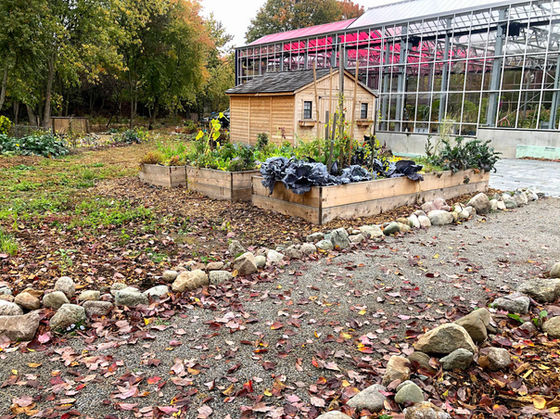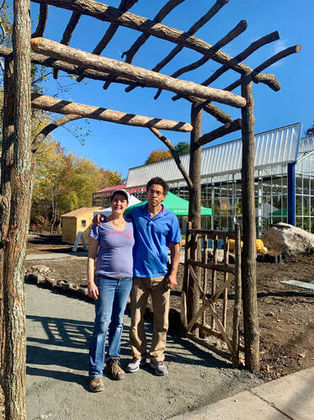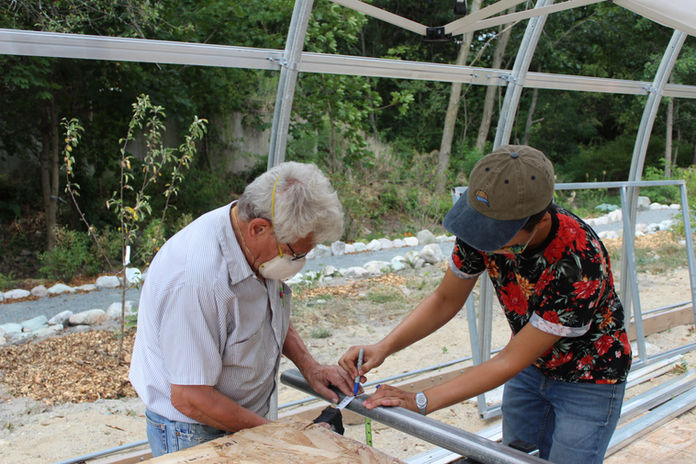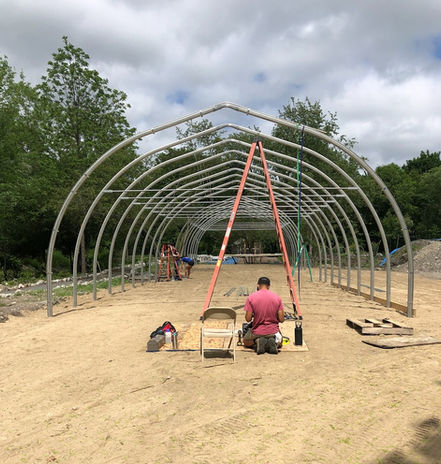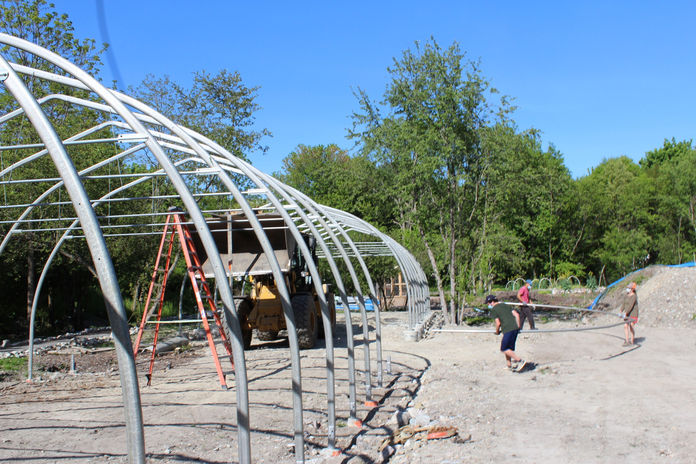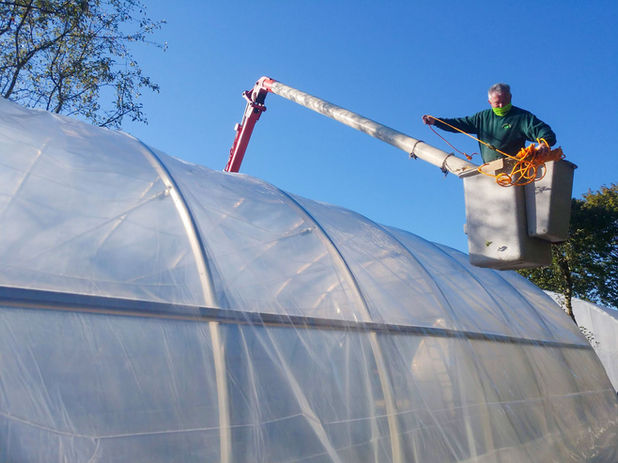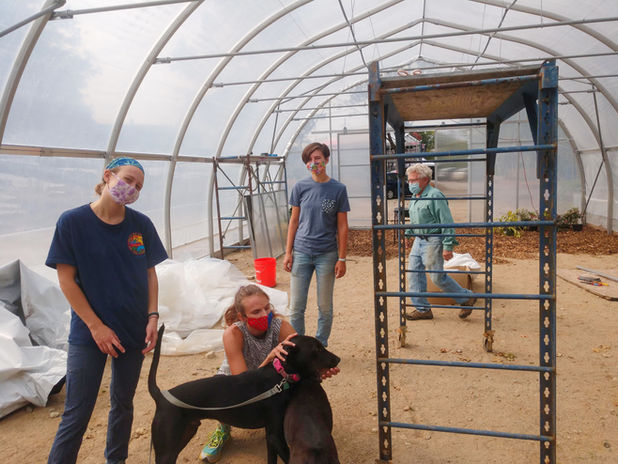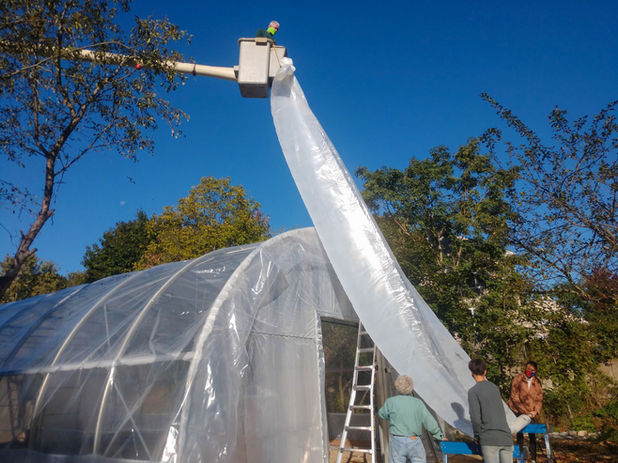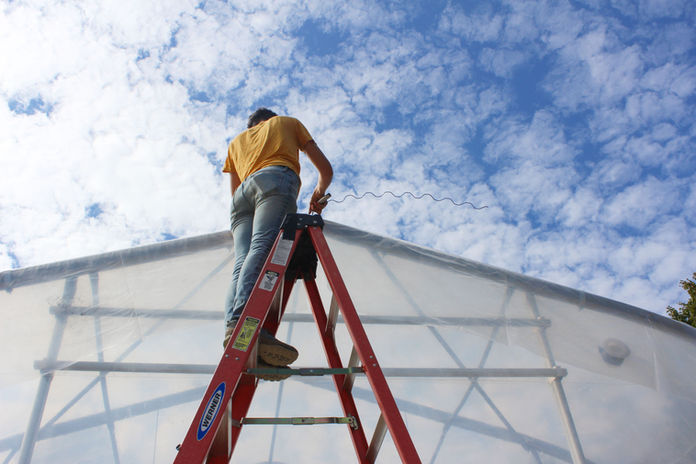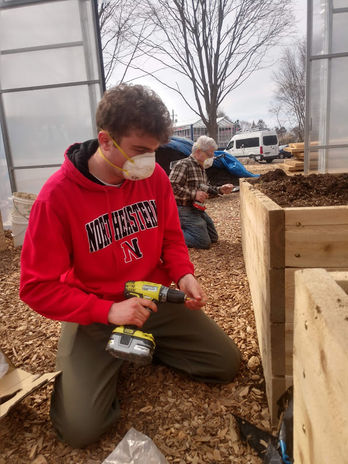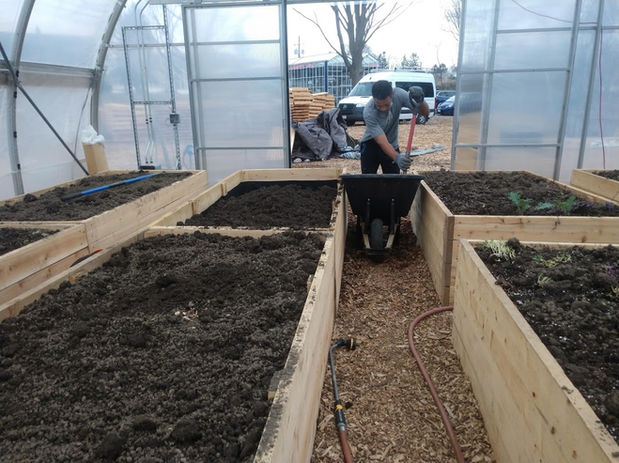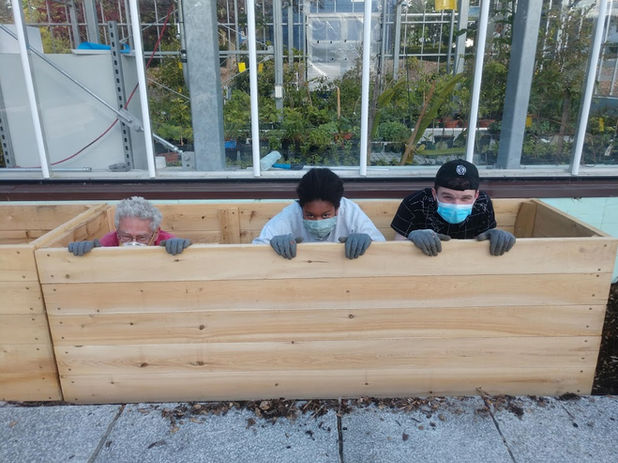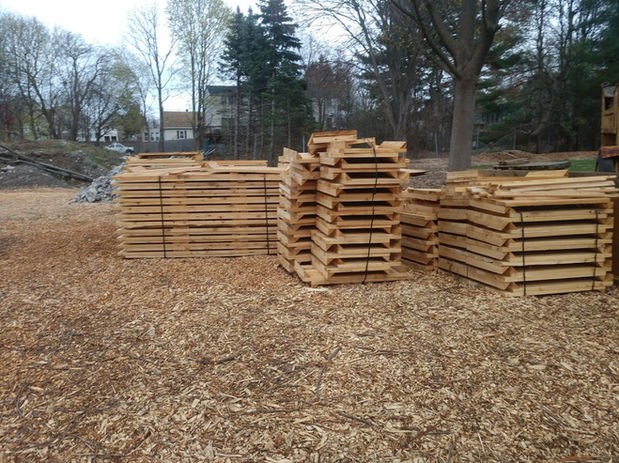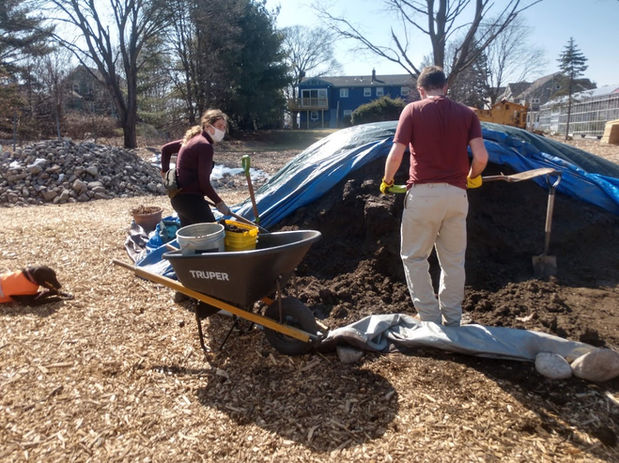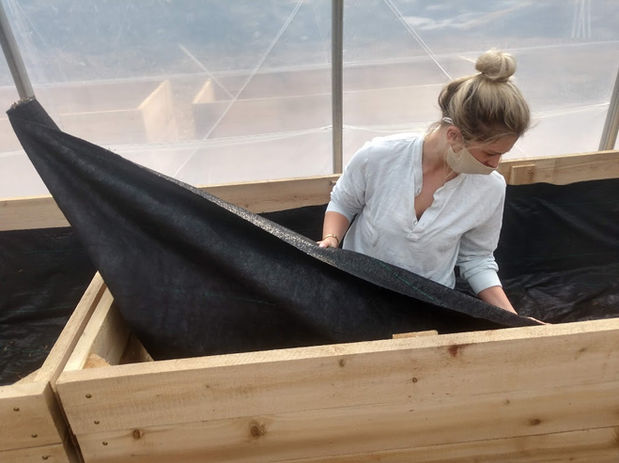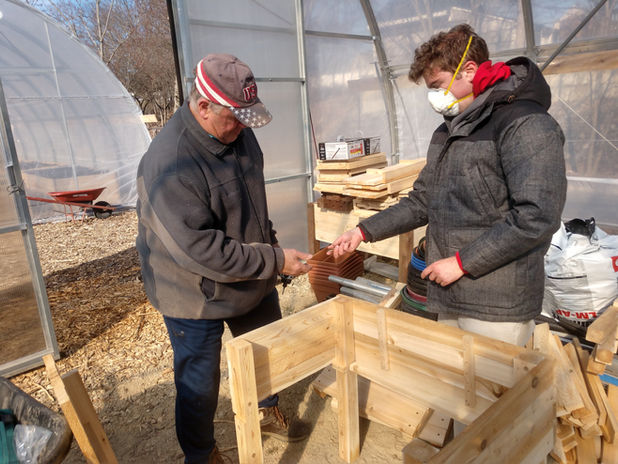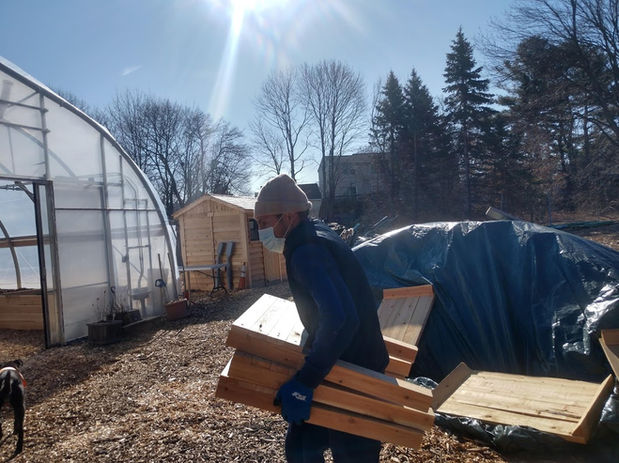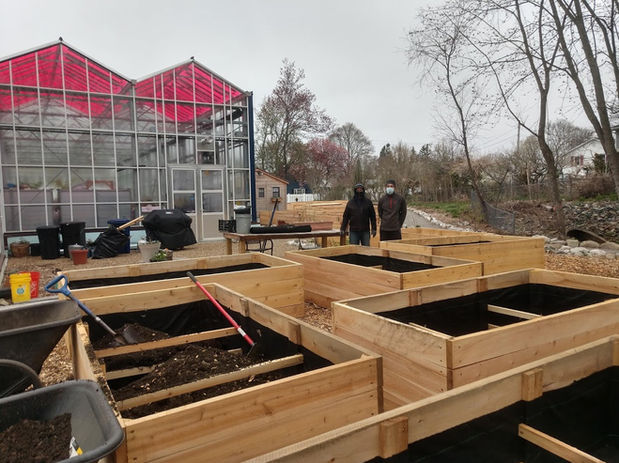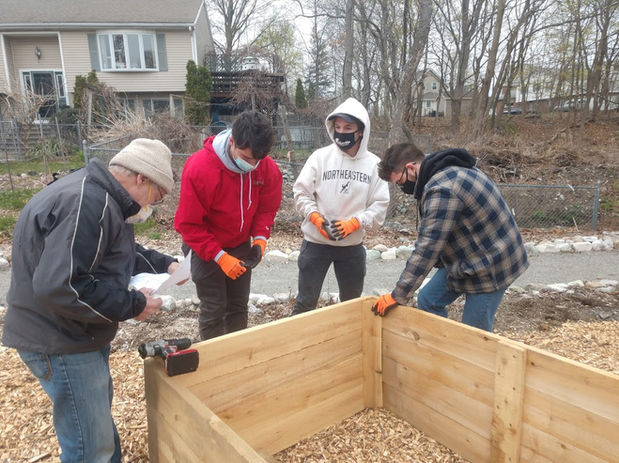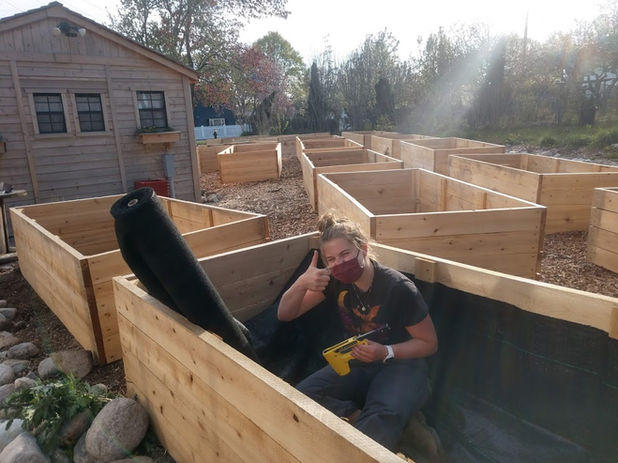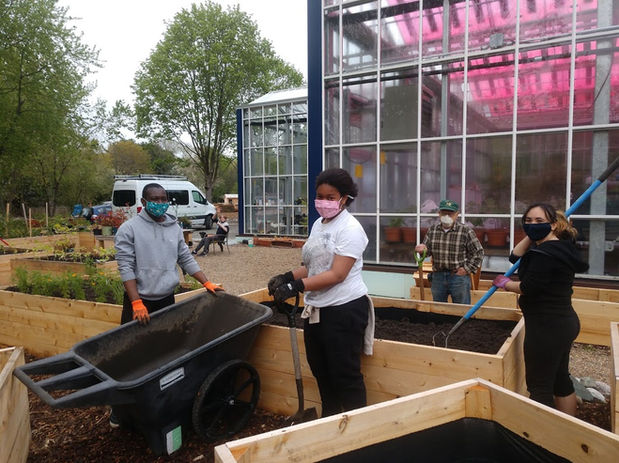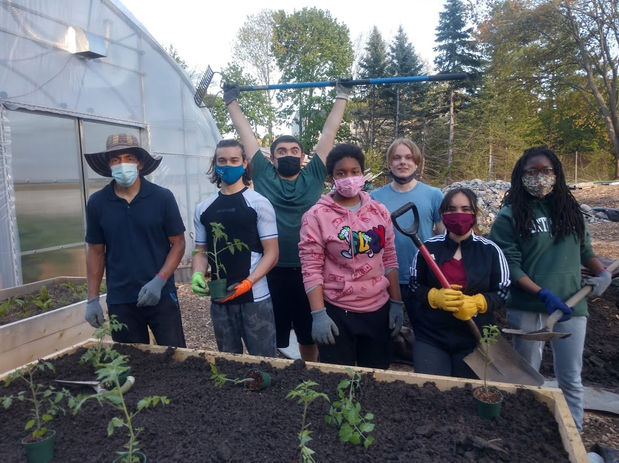
Through persistence, patience, and hard work, our business has expanded from a sunroom addition to an urban farm complete with a glass greenhouse, two high tunnels, raised garden beds, and a gorgeous walking path lined with native plants. We are thankful to everyone who supported us along the way. Scroll to see our farm grow!

We Grow Microgreens, LLC began in a sunroom addition in Tim and Lisa's home in Roslindale, MA.





In March 2018, Tim and Lisa were conveyed the deed to the land in Hyde Park, MA. The land was privately owned until 1994, when the City foreclosed on the land. Since then, it had been held in the Department of Neighborhood Development’s inventory of city-owned vacant land. The land now holds an agricultural deed restriction. Former Mayor Marty Walsh congratulates Lisa and Tim on their success at the Ribbon cutting in October of 2019.



Work began in clearing the land! Parts of the stormwater drainage ditch were filled with thousands of bottles and invasive plants like Japanese Knotweed and multi-flora rose. The ditch is now clean and clear of weeds and trash due to our clean-up efforts.


Almost immediately after starting to work at the new site in Hyde Park to clear it of brambles and trash, the neighborhood teens started to appear wanting to help out. We are immensely grateful for all of their hard work pruning trees and removing knotweed, broken bottles, and rocks. Their energy and enthusiasm helped keep us going during the long process of getting the project approved.


Before the Gakon greenhouse was built, operations ran out of this small net-zero greenhouse on the site.


Excavation began on the Gakon Greenhouse in March 2019.




Forming the foundation walls.
Our greenhouse arrived in one
18-wheeler truck!


The foundation is formed.


Two 3,500 gallon rainwater collection tanks sit underneath our greenhouse, collecting rainwater from the roof.


Our greenhouse structure was completed in August 2019 and we began growing on racks.

In February, we began installation of heated flood benches, a water and energy conserving feature of the greenhouse. The benches were finished and in use by April.


Our greenhouse, looking in from Norton Street.



The Community Preservation Act Path
With the help of the Community Preservation Act, we were able to construct a beautiful walking path down the length of the farm. The path is skillfully designed by Wes Wirth of Thomas Wirth Associates and features unique plants and a lovely view of our growing operations in our greenhouse and high tunnels.
The High Tunnels
The construction of two high tunnels was the next step of our journey. The high tunnels are allowing us to expand both the variety and quantity of the crops we produce, as well as provide an educational environmental for youth lessons on microgreens growing.
Raised Garden Beds
We were awarded a grant to purchase enough wood to make 160 raised garden beds. Our architecture intern created an all-encompassing plan for dedicated volunteers to build. We could not be more thankful for the community's efforts to help build them! We are so excited to finish filling them with soil and start our next phase of growing.
Ground Fridges
The farm was awarded a Massachusetts Departmante of Agriculture grant tlp purchase two Danish Groundfridges earlier this year. These refrigerators are energy efficient, requiring minimal energy to keep cold due to the dual insulation of the Groundfridge's foam and their being underground.
The first Groundfridge is in!


One of our interns, Chloe, cools off.
The final product: this fridge sits right outside our greenhouse and is adorned with gold and orange gem marigolds.


Greenhouse Improvements
Through a grant from the Massachusetts Department of Agriculture, the farm was able to install radiant floor heat in the spring of 2022. Hot water is carried through tubing in the floor, directly and efficiently warming the plants and people that live and work in our greenhouse. The direct root zone heating allows the greenhouse to be kept cooler temperature thus acting as an energy efficiency measure.
Irrigation System
We Grow Microgreens installed an above ground irrigation system during the summer of 2022. The design was completed by a National Resource Conservation Service engineer and installed by our intern Emilie.


Grants
We Grow Microgreens has been successful in winning grants from the City of Boston, the State of Massachusetts, the United States Department of Agriculture, the Massachusetts Department of Agriculture and LEAF. We are immensely grateful for their support and equally proud of the intersectional environmental, social, and agricultural work this funding has enabled us to do.



Community Support

City Counsilor Ruthzee Louijeune and community organizer Marcia Kimm-Jackson present Tim with a resolution recognizing We Grow Microgreens contributions to the community.
Shadow Study
Unfortunately, a private developer has proposed to build three large 35 foot tall single family houses on the single family lot at 15 Norton Street, where there is an existing small green colored house that would get demolished. The Project requires a variance and thus a Zoning Board of Appeals review. The proposed project abuts We Grow Microgreens, LLC’s farm on the backside.The Zoning Board of Appeals Hearing was Tuesday, October 5th, 2021. We are very concerned by the shadows that this project for three very large single-family houses will cast on our farm, making it difficult for us to grow produce. Please consider looking at the shadow study to see the direct impacts on our Hyde Park Greenhouse, and be sure to sign our petition here.
Our Farm strongly supports S.1893/H.2995, an Act Promoting Urban Agriculture and Horticulture. The hearing on it was January 21st, 2022, where Lisa testified. The Hearing went well and State Representative, Rob Consalvo (hyperlink), spoke at the hearing in support of the Bill and our farm. We hope that the Bill will be reported out of committee after their next work session. From there, it will need to go to the full house and senate for approval. The legislative process is long, but this successful hearing was a great step in the right direction.
Thank you to the Conservation Law Foundation for advocacy on this issue. We are excited to be working with them in changing the Massachusetts constitution to better support small farms.

.png)

